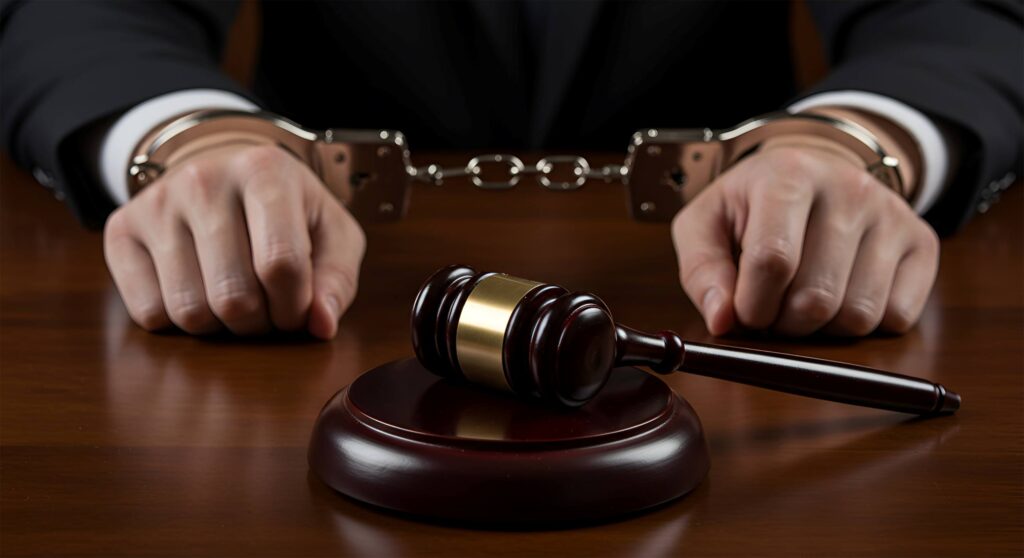Navigating the complexities of the American criminal justice system, particularly when facing a felony charge, is an immensely challenging and high-stakes endeavor. The consequences of a conviction are severe and can include lengthy prison sentences, substantial fines, and a permanent criminal record that affects employment, housing, and civil rights for a lifetime.
Given what is at risk, selecting a legal representative is the most critical decision a defendant will make. This process requires meticulous research, careful evaluation, and a clear understanding of the qualities that define effective legal counsel.
Read on to learn how to find a criminal defense lawyer for felony cases.
Understand the Gravity of Felony Charges
A felony is the most serious category of crime, encompassing offenses such as murder, rape, armed robbery, major drug trafficking, and large-scale fraud. The distinguishing factors from misdemeanors are the potential punishment, such as incarceration in a state or federal prison for more than one year, often including multi-year or life sentences, and the long-term collateral consequences. These can include the loss of the right to vote, the inability to possess firearms, disqualification from certain professions and licenses, and difficulty in securing loans or government benefits.
The gravity of these potential outcomes also underscores the necessity of securing a lawyer specialising exclusively in criminal defense and having a proven track record with felony cases.
Know Key Qualities to Seek in a Defense Attorney
When evaluating potential counsel, several critical attributes must be considered. These include:
Trial Experience
While many cases are resolved through negotiation, a lawyer must have significant trial experience. A reputation as a skilled and willing trial attorney can provide leverage during plea negotiations, as prosecutors are more likely to offer favorable terms if they know the alternative is a formidable court battle.
Local Court Knowledge
Familiarity with local courthouses, judges, and district attorneys can be invaluable. An attorney who understands the tendencies and preferences of the specific courtroom can tailor their strategy more effectively, from arguing motions to selecting a jury.
Resources and Investigative Capacity
Felony cases typically require extensive investigation, including hiring expert witnesses like forensic specialists, private investigators, or medical professionals. A well-established law firm should have the financial resources and professional network to conduct a thorough independent investigation to challenge the prosecution’s evidence.
Furthermore, reviewing a firm’s published resources, such as their detailed explanations of criminal defense strategies in Los Angeles or similar locations, can offer valuable insights into their knowledge and approach to complex cases. This preliminary research can help create a shortlist of potential attorneys for further vetting.
Communication and Rapport
The attorney-client relationship is built on trust and clear communication. The lawyer should be accessible, responsive, and able to explain complex legal concepts in understandable terms. They must listen to the client’s concerns and keep them informed at every stage of the process.
Ask the Right Questions During the Consultation Process
Most criminal defense attorneys offer an initial consultation, an opportunity for the defendant to interview the lawyer. This meeting is not just for the attorney to learn about the case, but it’s for the client to assess the attorney’s suitability. Preparation is key. Hence, clients should come with a list of pertinent questions, including:
- How many cases similar to mine have you handled?
- What is your experience in the specific courthouse where my case will be heard?
- What are the possible outcomes you see for my case?
- What defense strategies might you employ?
- Who will be primarily working on my case?
- Will it be you or other associates?
- How will we communicate, and how often can I expect updates?
- Can you provide an estimate of your fees and a explanation of your billing structure?
The answers to these questions can clarify the attorney’s experience, strategy, and whether their practice is a good fit.
Understand Fee Structures
Legal representation for felony cases is expensive and understanding how fees are structured is essential. Typically, attorneys charge in one of three ways, such as flat fees, hourly rates, or retainer fees. For criminal cases, a flat fee is common. This is a set amount that covers representation through trial.
As such, it’s crucial to understand the fee, for instance, whether it covers expert witnesses, investigation costs, or appeals. Hourly billing involves paying for each hour of work performed, while a retainer is an upfront payment placed in a trust account and drawn from as the attorney works hourly. Clients should always request a written fee agreement detailing the services and financial responsibilities.
Consider the Importance of Specialization and Certifications

While any licensed attorney can technically represent a defendant in a felony case, specialization matters. Many state bar associations offer board certification in criminal law, which signifies that an attorney has met heightened experience and peer review standards. Membership in national organizations can also indicate a commitment to staying current with developments in criminal law and defense tactics. These certifications aren’t a guarantee of success, but they serve as a strong indicator of a lawyer’s dedication and expertise in the field.
Finalize the Decision and Establish the Relationship
After conducting thorough research and meeting with one or more attorneys, the final decision should be based on a combination of factors, such as proven expertise, a clear strategic vision for the case, comfort level with the attorney’s communication style, and a transparent fee agreement.
Once hired, the client must be fully transparent with their counsel, providing all facts and documentation, however damaging they may seem. The attorney-client relationship is protected by confidentiality, and withholding information can severely damage the defense’s ability to build an effective strategy.
Key Takeaway
Selecting a criminal defense lawyer for a felony case demands diligence and discernment. The right attorney will provide a vigorous defense and offer guidance and support during one of life’s most difficult challenges. By keeping the information mentioned above in mind, individuals can secure skilled advocacy to protect their rights, freedom, and future.
Image Sources






